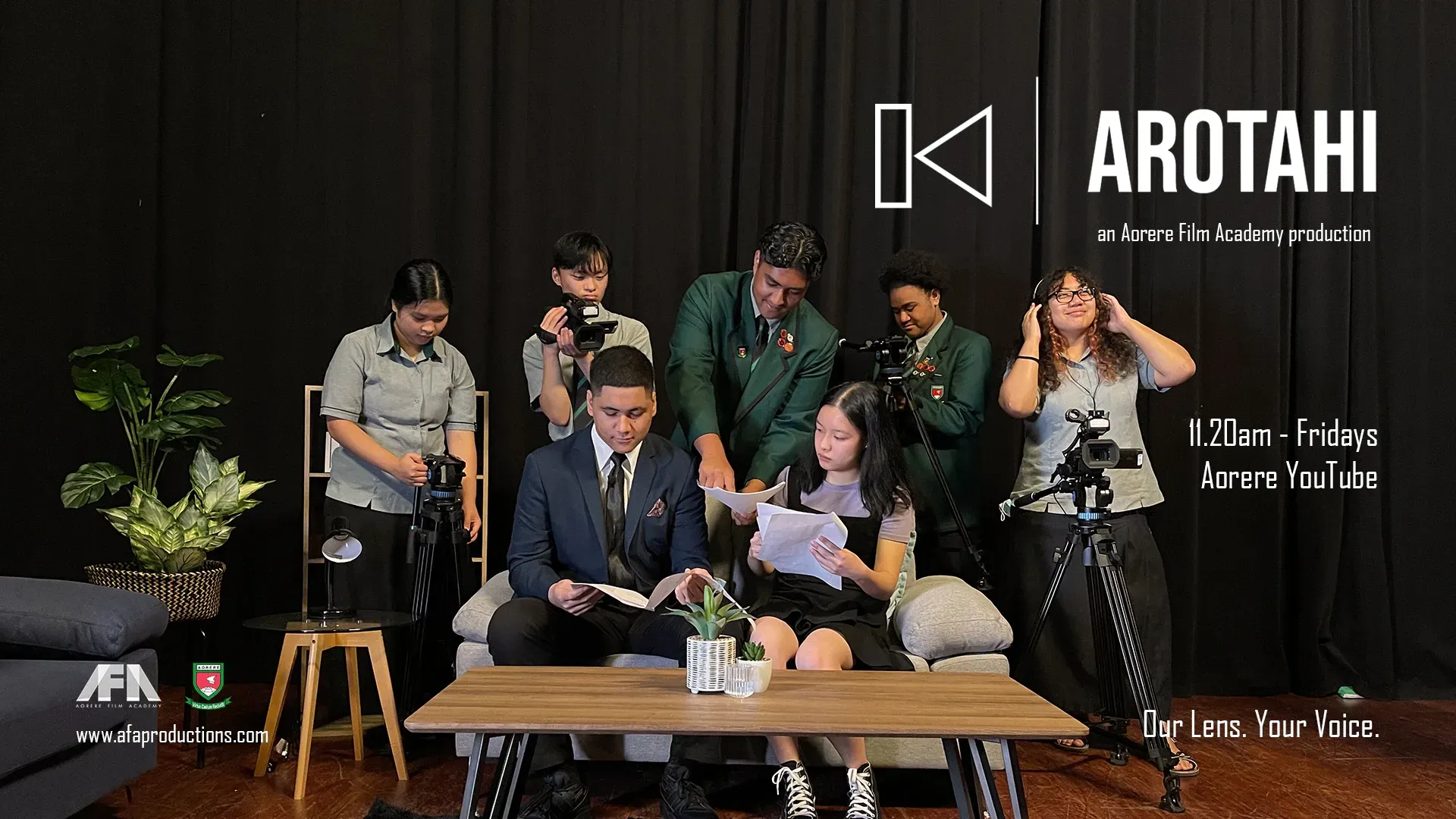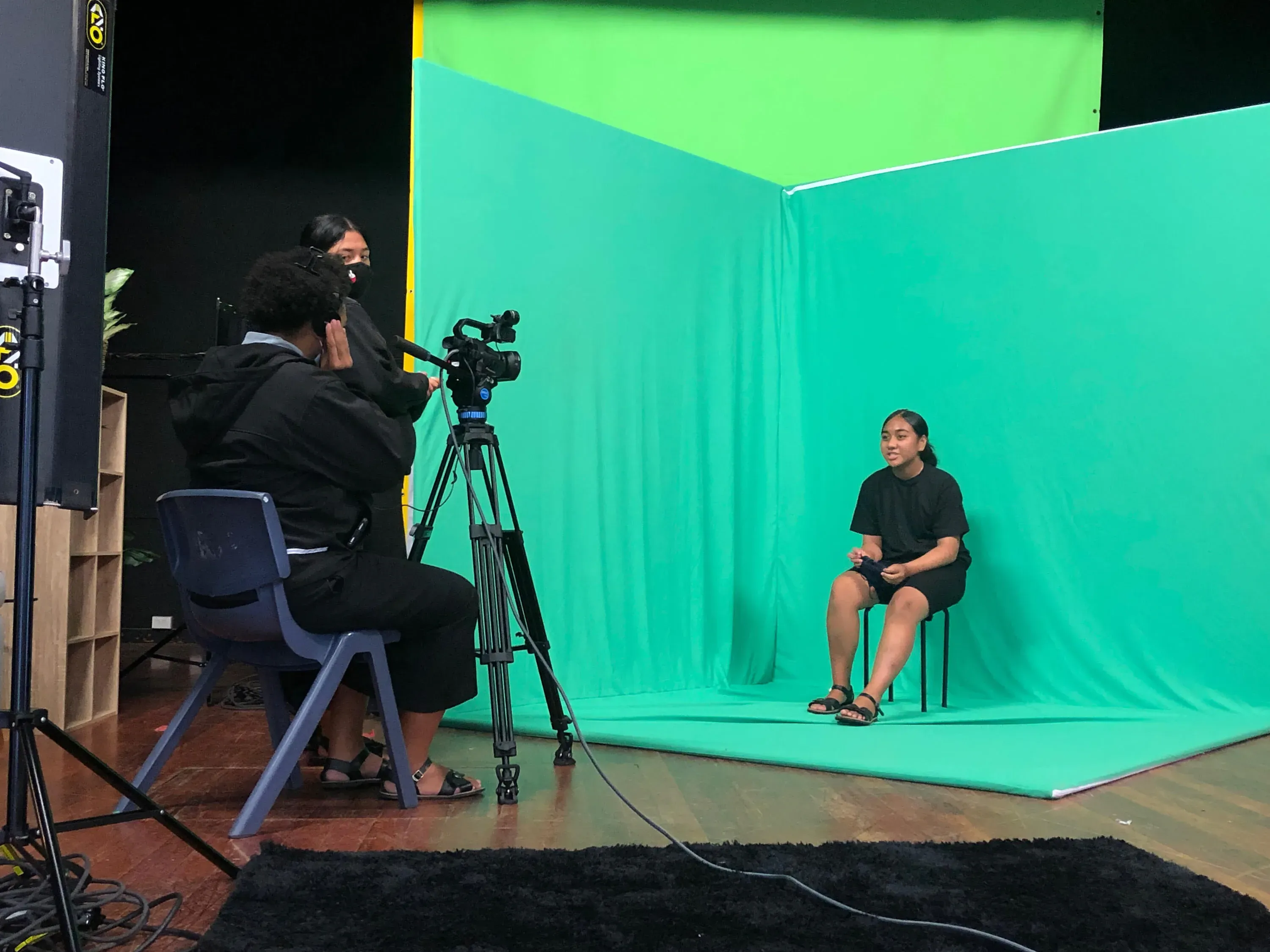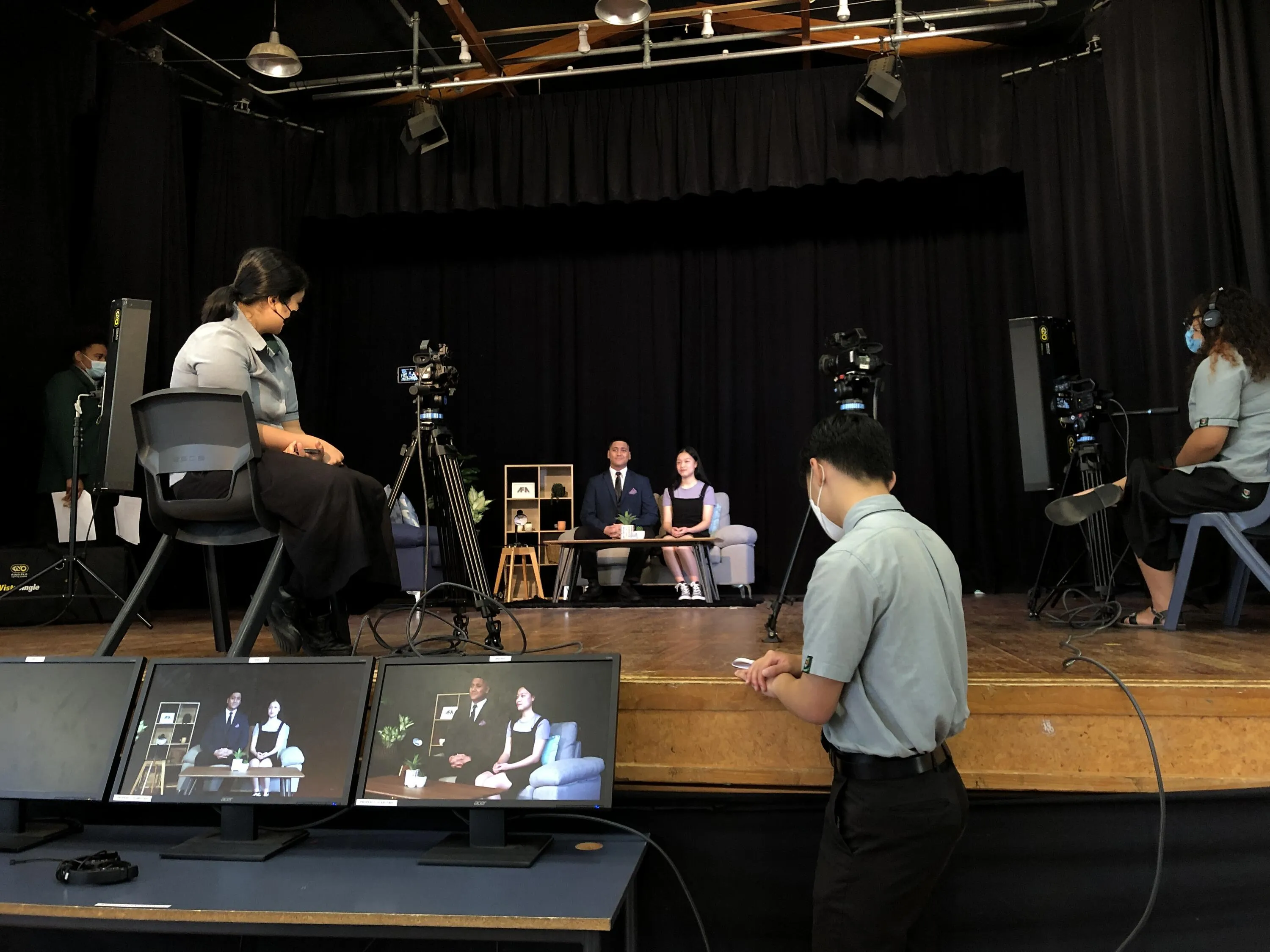How Creative Input Can Be A Game-Changer In Schools
Written by

Creativity thrives in so many different conditions - but nothing brings out the best in impressionable minds like a nurturing environment.
South Auckland’s Aorere College’s approach of embracing the creative process had a huge impact on former student Nirvika Nair.
“Aorere College is so special to me,” she enthuses. “In year 9 - as with many others that age - I struggled a lot with finding who I was. After taking subjects like Drama and Digital Technologies, I was able to find what I really enjoyed.”
So helping to broaden the creative horizons of the next wave of students was an easy decision for Nair. Now finishing her final Bachelor of Communications Studies papers at AUT, she has a desire to pursue a career in editing.
“I really enjoy post production and bringing together different elements to make a cohesive story. I love storytelling, especially when it comes to highlighting my community.”
Nair and her former teacher Muzaffar Ali put their heads together to utilise the Creatives in Schools programme, seizing the opportunity to apply for funding of up to $17,000 per project for their joint project to provide engaging learning experiences for students.
Their concept played to their collective strengths - the creation of Arotahi, a news-style show created by Aorere students on both sides of the camera, telling the stories of their school and their communities.
It’s an extension of the Aorere Film Academy (AFA), which was born nine years ago and has blossomed into a hive of creative activity. AFA is also behind AFA Productions that produced Code-Switch multi-art theatre show, which Nair has co-written alongside Marietta Apulu and Lex Shoemark.
Ali explains “we are very lucky to have AFA, it started off as an extracurricular activity but is now a timetabled class with credits attached and students can gain UE (University Entrance). They are able to do a mixture of Media Studies, Digital Technology and Generic Technology standards depending on their role and interest in the academy.”
Pandemic pivot
The spark for Arotahi came from - of all things - COVID.
Last year’s second wave of Lockdowns put the kaibosh on AFA’s ability to take their successful Code-Switch live production into Auckland’s Q Theatre and to Te Papa. The future of events was up in the air.
After helping create a virtual school prizegiving - when an in-person event was taken off the cards - Ali says “that is when I thought about a webisodes style project, where students could produce online episodes that could be made under the health settings.”
After presenting the concept to Principal Leanne Webb, Ali recruited Nair, who had already been giving her time to AFA. “It’s so great that she was able to be paid for her mentorship this time,” Ali nods.

Nirvika Nair and Muzaffar Ali. Photo: Supplied.
"Nirvika understands what the student experience is like, she is aware of the latest conventions and she resonates well with the students. She has lived and belongs to our community so she just gets it!
“Her knowledge of the industry lifts the game for the students in terms of quality and standards - it’s been invaluable.”
The power of giving back
Having been in the students' shoes herself - Nair knows the importance of empowering them.
“I always believe in young people and the fact that they can be trusted with big ideas,” she states.

Aorere students working on an episode of Arotahi. Photo: Supplied.
“Arotahi allows students to not only take up responsibility and leadership with strict deadlines, but also have an outlet to be as creative as they like. Any ideas the students have, we try to incorporate them in some way while talking about it in a team.
“I really enjoy mentoring and passing on whatever I have learnt, both from university and my time in AFA.
“Aorere has such a diverse student body, not only in background, but also interests, strengths and opportunities. I feel that programmes like these allow the staff and community to realise how amazing the students are if they are given the opportunity.
“It is super cool to hear them be comfortable with taking feedback from others, but also just as important to pat themselves - and each other - on the back after a successful show.”

Aorere College's school hall is transformed into the Arotahi set. Photo: Supplied.
Ali can see the influence Arotahi is making with his students.
“They absolutely enjoy it and it gives them an avenue to express themselves. They are very engaged and have found themselves through the process. I can see them growing creatively, especially under pressure - it helps them think outside the box.
“Knowing that there is a large audience that watches their content makes them come up with new ideas all the time. They push each other, keep up with trends and develop their creativity through this journey.”
Nair has found the whole Creatives in Schools process hugely fulfilling. “It’s a great way for creatives to share what they love and be paid for it.
“No matter the size of the project, I think it will have a big impact on those involved. Not only the students but for the community and most importantly, you as a creative.
“It is really rewarding to see how you can help people to discover things about themselves. A creative process is not simple and can help someone be more confident, have leadership, be a team player and communicate well."
Having fielded interest from the wider community about what they’re doing and how it might be replicated, Ali has simple advice for any educators thinking about applying.
“Do it! It will broaden your students’ horizons and is a great opportunity for professional development as well. You learn a lot from the creative and gain invaluable industry insights.”
Written in partnership with Creatives in Schools. Applications are currently open - schools and artists can find out how to get involved by clicking here.


